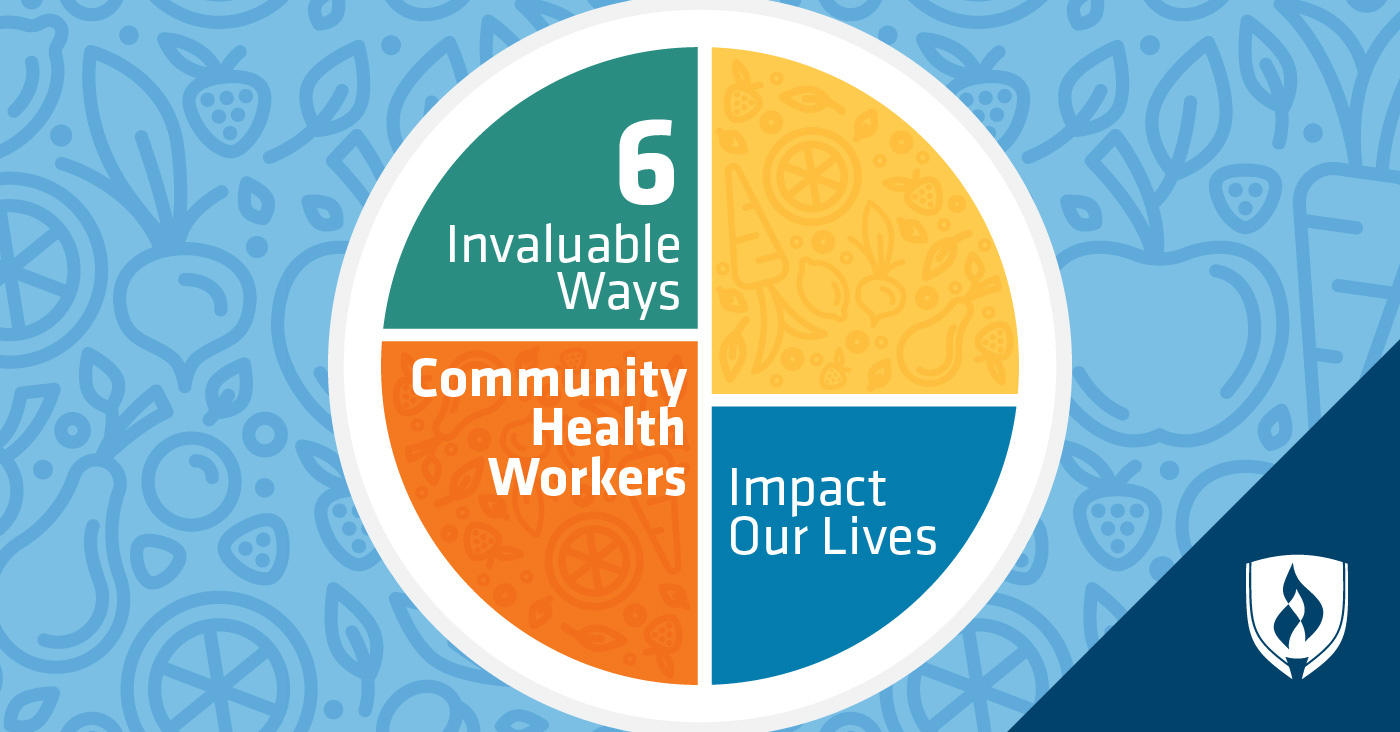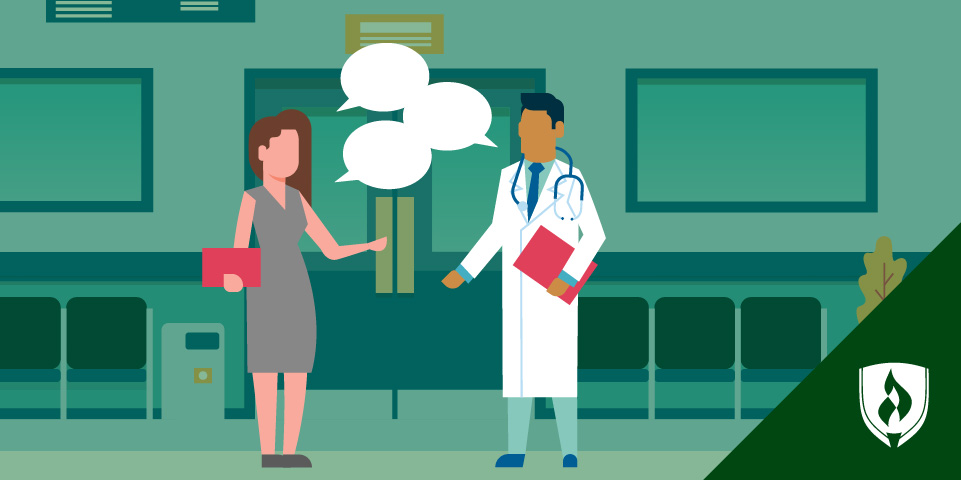
As younger consumers trend toward healthier eating and consumers across the board are seeking healthier options, it’s clear that society is placing more of an emphasis on health and wellness. If you’ve always been passionate about healthy living and are interested in helping others improve their overall well-being, a career in community health might be for you.
Community health workers act as liaisons between health or social services and people in their communities. They advocate and provide information and other resources so community members know what their options are for improving their health.
This all sounds well and good, but what does this work actually look like in action? Join us as we take a closer look at a few of the many ways community health workers benefit our communities day in and day out.
Community health workers impact our lives by …
Improving public health is a monumental task. Community health workers (CHWs) do their part in this important feat by doing the following:
1. Connecting marginalized communities to health resources
A community health worker’s job may vary depending on the locale or cultural setting. Many are found working in underprivileged, marginalized communities where people may lack appropriate access to health resources.
These communities may have certain cultural or religious beliefs that differ from their health options in the area. They may not speak English fluently or they may not have the means to pay for healthcare. CHWs play the essential role of helping their area’s healthcare systems become more culturally relevant for the people they serve.
2. Furthering education about healthy living
Another important task CHWs take on is to assist communities by helping people understand the healthcare system and educating them about healthy living. They may teach people about their health conditions, help them devise strategies for dealing with illnesses or conditions or coach community members about healthy lifestyle choices.
“People are constantly receiving information about healthy living from different sources,” says James Smith, a third-year medical student at the University of Illinois College of Medicine. “Even if the information is quality, there can be barriers to applying it.”
Depending on their position, CHWs might teach classes to educate a larger group of people at once, or they might meet with clients one-on-one to talk about specific action plans or educate about a particular ailment. Their goal is to eventually promote self-sufficiency in the community. Helping people understand the best way to take care of themselves and connect with healthcare is an integral part of that process.
3. Acting as an advocate for the community
In many settings, there is a lack of understanding between the local healthcare system and the community it serves. CHWs will often act as advocates for those who lack access to quality healthcare. They speak on behalf of these communities, serving as an intermediary and explaining cultural, religious or monetary differences while advocating for better care and resources.
These are the people on the front lines, and they may work alongside community leaders to make sure everyone is properly taken care of.
4. Providing informal counseling and social support
People feel empowered and cared for when someone follows-up with them, and community health workers are key in providing this kind of social support. As CHWs work with patients and community members, they advise them about how to connect with the government and with healthcare services. This kind of support makes a big difference.
When there are challenges to receiving healthcare, enabling community members can go a long way in creating an avenue for change in the future.
5. Making home visits and providing health services
While empowering a class of community members might seem exciting, not all of a CHW’s work takes place in front of a group of people. It may not seem as glamorous, but another way some community health workers make an impact is by making home visits to chronically ill patients, elderly clients or individuals at high risk of mental illness.
CHWs may administer medicine, educate patients and their families about a care plan, monitor blood pressure or perform first aid. While this part of the job is not often as prominent, these services are significant for those who are receiving care.
6. Improving communication
For those who have different values and beliefs than the typical Western healthcare system, communication can be a huge hurdle. CHWs sometimes act as translators and will work through language barriers between patients and the healthcare system. It’s typical for community health workers to come from the same community background they’re serving, but that isn’t always the case.
“Medical terminology can be confusing, and upon getting a diagnosis or treatment, there may be words that are not recognizable [to the patient],” Smith says. “Without a good understanding [of the language], it can be difficult to make an informed decision.” Smith adds that patients are often too intimidated to admit they don’t understand what they’re being told or they may feel so lost that they don't even know where to begin to ask questions.
CHWs may help community members understand how to get in contact with healthcare resources, how to rally for rights and how to gain access to quality care, including medicine, insurance, housing and food.
Are you ready to make an impact?
There’s no doubt about it: Community health workers play a huge role in helping people and impacting communities for the better. The list above reflects just a few of the ways these professionals make a difference each day on the job.
Now that you understand the integral role community health workers play in our society, are you considering joining their ranks? Learn more about their daily duties in our article, “What is it Really Like Being a Community Health Worker.”
RELATED ARTICLES:
- What Can You Do with a Health & Wellness Degree?
- 5 Things You Need to Know About Working in Corporate Wellness
- What is Social Services? A Closer Look at the Programs Serving Up Stronger Communities
- 6 Examples of Positive Workplace Health Practices
- 11 Healthy Heart Tips to Help Keep the Doctor Away
- What's the Big Deal About Digital Health? Understanding This Revolution in Healthcare




